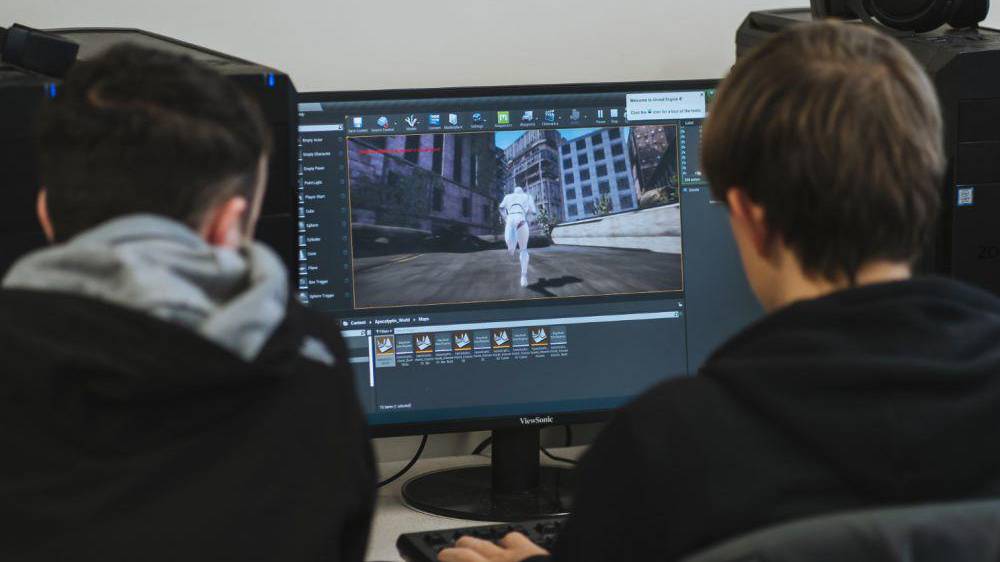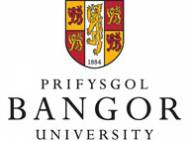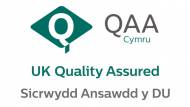Foundation Degree (FdSc) 3D Art and Games Development
Key Details
-
Available at:Rhos-on-Sea
-
Study Mode:Part-time, Full-time
-
Course Length:
Full-time: 2 years OR Part-time: 4 years. Also available on a modular basis.
-
UCAS Codes:6T51
Foundation Degree (FdSc) 3D Art and Games Development
University-level Courses
Part Time
If you are applying to study part-time you can apply directly to the campus of your choice.
Full Time
There are two ways to apply to study for a full-time higher education course - either through UCAS or directly to the college.
Applying through UCAS:
You should apply through UCAS if you are currently studying for A Levels, a vocational Level 3 course (i.e. BTEC) or an Access to Higher Education qualification, or if you wish to apply to more than one higher education provider.
There are two ways to apply to study for a full-time higher education course - either through UCAS or directly to the college.
Course Description
Would you like a challenging career working within the games industry?
The games industry is now a multi-billion-pound industry, worldwide. To cope with this growing demand, the industry needs increasing numbers of Artists, Developers and a number of other exciting specialist roles.
This course prepares you to become one of those specialists, and allows you to fulfil a number of roles in this varied sector. Throughout the course you will benefit from an outstanding learning environment, with state-of-the-art technology, open access computer facilities and excellent tutor support.
This course provides you knowledge and practical skills across a range of areas. It is suitable if you have studied at Level 3 (or equivalent) and would like to progress into a number of career paths including 3D artist, architectural visualisation, games developer.
The course gives a firm understanding of many core areas of games development, including 3D modelling, animation, audio, programming and user interface design.
As well as the broad base of knowledge, you will gain professional skills that are vital to your career development, such as teamwork and problem-solving. You will develop an innovative, multi-skilled and flexible approach to your work, as well possessing a wealth of technical expertise.
Grŵp Llandrillo Menai is a member of the PlayStation®First Academic Programme run by Sony Interactive Entertainment Europe (SIEE), which provides access to professional development hardware and software tools for both staff and students.
Modules include:
Year 1 (Level 4)
- Environment Art Fundamentals
- Game Design Principles
- Gameplay Research
- Group Production
- Introduction to 3D Modelling
- Introduction to 3D Animation
- Introduction to Games Development
- Player Experience
Year 2 (Level 5)
- Art of Lighting
- Character Design
- Games Development
- Games Industry Research Project
- Methodology Driven Project
- Mixed Platform Development
- Prop Design
- Texture Design and Application
Additional information
More detailed information on Modules is to be found in the ‘Additional Campus/Course Information’ section.
Entry Criteria
Academic requirements:
- Applicants will normally be expected to have gained 96 UCAS points where 72 points are from a computing or media-related level 3 course, or similar A2 subjects
- GCSE passes at Grade C/4 or above (or Key Skill equivalent) in Mathematics, Welsh (first language)/English and Science
- If you do not have the above qualifications you may be considered on an individual basis through a demonstration of relevant experience, potential and motivation
- Students with relevant equivalent overseas qualifications will be considered
- It is possible for experienced practitioners to enter the programme with NVQ 3 qualifications.
Language requirements:
- Good proficiency in Welsh/English, with equivalent GCSE grade C/4 or above
- Any degrees, diplomas or certificates eligible above should have been taught and assessed in Welsh/English
- For overseas applicants, for entry onto Level 4: IELTS 5.5 or higher (with no element less than 5.0)
- For overseas applicants, for entry onto Levels 5: IELTS 6.0 or higher (with no sub-part less than 5.5).
All places are subject to satisfactory interview.
If your qualifications do not meet the entry requirements listed above, we would still encourage you to apply for the course you're interested in, as many of our courses will consider learners based on their previous work and skills experience rather than their qualifications.
Delivery
You will learn through a blend of the following:
- Interactive lectures
- Practical workshops
- Group discussions / activities
- Guest speakers
- Virtual learning environment (MOODLE)
- Online Tutorials
- Learning is participative, informal and full of opportunities for individual exploration and creativity.
- Industrial placement may also form part of the course.
Students are responsible for organising their own work experience if it is a requirement on their programme, and they will be supported by the course team.
Students will undertake a total of 75 hours of placement. 50 hours will be obtained from relevant modules at level 4 and level 5 respectively.
Students are recommended to find, agree and partake in work experience, professional development, industry talks and seminars for the remaining 25 hours
Additional costs may be associated with the following:
- A suitable computer or laptop that is capable of running modern 3D graphics software will support students with their independent learning hours. Approximately £1000
- Non mandatory trips that may be offered throughout the programme
- Non mandatory developer licenses, (e.g., Android) that may showcase your work externally. Approximate cost $25, Maxon One subscription approximately £66
- Where possible, all software used on the programme is free, however in some instances, students may wish to purchase personal licences for software.
Timetable
Full Time
- Level 4: Monday & Tuesday, 9am – 5pm
- Level 5: Tuesday & Thursday, 9am – 5pm
Part Time
- Year 1: Monday, 9am – 5pm
- Year 2: Tuesday, 9am – 5pm
- Year 3: Tuesday, 9am - 5pm
- Year 4: Thursday, 9am - 5pm
Fees
Visit our course fees page for information on full and part-time degree course fees.
Financial Support
Visit our financial support page for information on the range of support available.
More detailed information on other costs associated with your course and work placements/work experience (if applicable) will be outlined in the programme validation document and explained to you at your interview.
Start date
September
Contact:
For specific course enquiries, please contact:
Jordan Edwards (Programme Leader): edward2j@gllm.ac.uk
David Clarke (Administration): clarke1d@gllm.ac.uk
For general enquiries about our degrees, please contact: degrees@gllm.ac.uk
Assessment
The course is assessed through a blend of the following:
- Reports
- Portfolios
- Art Tasks
- Development Tasks
- Demonstrations
- Presentations
Feedback
Where relevant, assessments will be marked and returned to students with constructive and developmental feedback. Effective feedback combines information which enables students to understand the strengths and limitations of their past performance, and information which enables them to recognise how future performance can be improved. Students will be provided with feedback in a timely manner and this feedback will justify how the grade has been awarded. Students will have the opportunity to reflect on the feedback given and identify their strengths, things they found challenging and areas for development that they will feed forward to their next assessment. Feedback will include linking evidence to assessment criteria to demonstrate how the student will have met the learning outcomes.
Progression
This qualification will allow individuals to enter into relevant employment in the sector or progress to Level 6 of an Honours degree. It will prepare you to enter the games industry as a freelancer or as part of a larger organisation.
“The UK games industry employs over 9,000 highly skilled development staff, 80 per cent of whom are employed outside of London. 80 per cent of the workforce in game studios such as Climax, Jagex, Kuju Entertainment, Rebellion and Ubisoft Reflections are qualified to degree level or above” (Tiga, 2013).
Campus Information Rhos-on-Sea
Unit information
For every 10 credits, students should engage with around 100 notional hours of learning. This will be approximately 30% direct learning contact and 70% independent student learning.
The course consists of the following modules:
Level 4
Environment Art Fundamentals (10 Credits)
This module aims to introduce students to the fundamentals of environment art, covering core concepts such as blockouts, trim sheets, and modular kits. Students will develop practical skills in creating realistic and stylised environment components, while also exploring key principles of storytelling within game environments.
Games Design Principles (10 Credits)
The module is designed to introduce students to the principles of designing engaging gameplay and interactive experiences. Students will be guided through various methods of designing games and overall gameplay, including level and world creation.The module will also include best practices in UX design, designing with accessibility, gameplay, system design and monetisation strategies.
Gameplay Research (10 Credits)
The module is designed to develop and strengthen the student’s ability to research and support their projects and justify their decisions. Through the use of sustained research, academic writing, academic conventions and the introduction to critical thought.
Group Production (20 Credits)
The aim of this module is to introduce a wider knowledge of the games industry and how to participate within it, whilst looking at how to improve and develop student soft skills. The module will cover employability aspects as well as looking at the growing indie scene and the benefits of being self-employed.
The module will introduce growing projects within the industry such as Tranzfuser, UK Games Fund, Grads in Games, and Global Game Jams and how they support students and why they should look and consider these activities. We will look at the economical impact of the industries and how games will shape the country/world
Introduction to 3D Modelling (20 Credits)
This module introduces the fundamental techniques of 3D modeling, focusing on creating assets for games. Students will explore a range of workflows, while gaining a solid understanding of geometric theory and a variety of modelling practices. Through hands-on practice, students will develop the skills to produce optimised, high-quality 3D models, suitable for both high and low poly applications.
Introduction to Animation (10 Credits)
This module aims to introduce the core skills of 3D Animation. Students will explore and make use of the 12 principles of animation, focusing on preparing animations for use in game engines and other creative platforms.
Introduction to Games Development (20 Credits)
This module introduces students to the fundamental concepts and practices in games development using a games engine. Students will learn how to create interactive gameplay by applying core programming techniques, including scripting and event handling. The module provides a strong foundation in coding principles required for building gameplay mechanics and engaging user experiences.
Player Experience (20 Credits)
This module explores the principles and practices of user experience (UX) design in games. Students will develop skills to design and implement user interfaces (UI), pause systems, audio integration, in-engine animations, and visual effects. Emphasis is placed on enhancing player engagement and immersion through intuitive and responsive game features.
Level 5
Art of Lightning (10 Credits)
This module aims to enable students to fully light, render and present their work to a professional level. Students will further develop knowledge and understanding of the lighting process for varying outcomes, and the rendering process that allows them to be viewed.
Character Design (10 Credits)
This module introduces the fundamental techniques and principles of character design, focusing on what makes a character suitable for games. Students l explore the importance of edge flow, topology, and UV mapping in creating characters optimised for games.
Games Development (20 Credits)
This module will extend the students existing knowledge of games design and development. Building on these two disciplines, students will be able to develop original games that vary in complexity. Students will learn how to properly scope a project, and be able to plan, create and test the completed projects to at least a beta stage of development. Students will learn about NPC behaviours, and creating gameplay that responds to user play styles.
Games Industry Research Project (20 Credits)
The module aims to enable students to apply a range of research skills appropriate to study of the creative industries in general and games development in particular. Through the creation of a proposal and academic poster, the module will prepare them for either further studies at Level 6 or career related research.
Methodology Driven Project (20 Credits)
This module aims to give students practical experience of planning and executing a games project whilst following a chosen methodology. Students will be taught a variety of current working methods and be expected to make an informed choice on which methodology would suit their group project. Working as a group allows a larger project to be accomplished than would be feasible working alone. Individuals will contribute to the initial design of the project and then carry out agreed tasks towards the finished product. The module highlights the importance of a coherent project plan, regular progress reviews and effective group working.
Mixed Platform Development (20 Credits)
This module introduces students to the development of applications across mobile, virtual reality (VR), and augmented reality (AR) platforms. Students will explore the unique features, challenges, and opportunities of each platform through practical experimentation. By the end of the module, they will design and develop a basic application for a chosen platform, applying industry-relevant skills and methodologies. Students will learn the correct approach to developing content for mixed reality and the programming libraries that will need to be utilised.
Prop Design (10 Credits)
This module focuses on the design and creation of 3D props. Students will examine various design principles to create functional and visually compelling assets. Emphasis will be placed on pipeline integration and the influence of historical and cultural contexts in crafting meaningful and immersive props.
Texture Design and Application (10 Credits)
This module aims to further develop the student’s ability to create textures and materials that they can apply to existing models. Students will understand the processes of creating PBR materials and textures from scratch, and make use of relevant industry standard software to aid in the process.
Other details
Course type: University-level Courses
Level:
4+5
Programme Area:
- Computing, Digital Technologies and Games Development
Awarding Body: Bangor University
Bilingual:
n/a
Computing, Digital Technologies and Games Development
Learn more about this area and see our course level guide:
Computing, Digital Technologies and Games Development

Awarding Body

